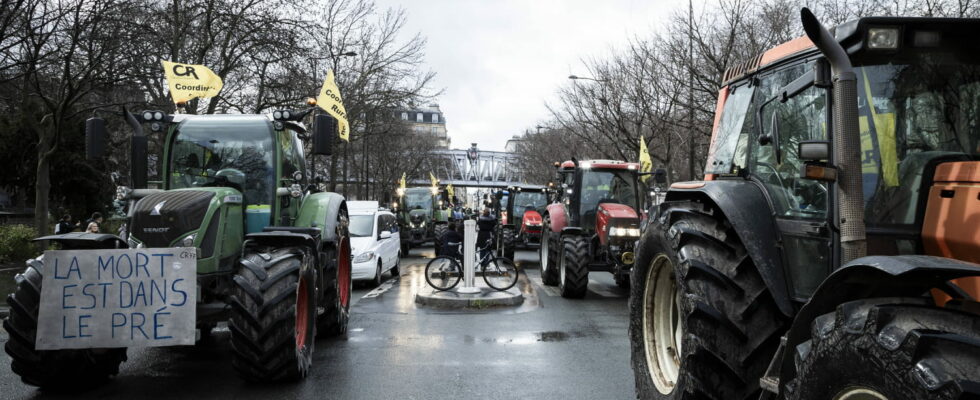The main agricultural unions are calling for mobilization from November 18 across the country. While the first protests are not expected to cause much disruption, they could gain strength quickly.
Farmers’ crisis, act 2. Several months after significant mobilizations blocking tolls and roads and almost a year after the start of the agricultural crisis, the farmers’ unions announce that they are getting the movement back on track. The president of the FNSEA, Arnaud Rousseau, and that of the Young Farmers (JA), Pierrick Horel, called for the mobilization of farmers from Monday, November 18 with demonstrations and rallies organized throughout the entire territory. .
“Our objective is not to bore the French” Arnaud Rousseau insisted during of a press conference Wednesday, November 13. The trade unionist also promised “responsible” mobilizations: “Despite the frustration, anger and helplessness, it is essential that there be no attacks on property and people.” “The objective is neither to block [les Français]nor to annoy them, even less to starve them”, repeated the boss of the FNSEA, recalling that the mobilization must make it possible to be heard by the government: he wishes to “put pressure on public authorities to ensure that our demands around of the dignity of our profession, of income, of the simplification of our daily lives and of the promotion of food sovereignty be heard.”
Mobilizations, but no road blockages
Neither the FNSEA nor the JA called for the blocking of roads and tolls as was the case at the start of the year, Arnaud Rousseau even dismissed the idea of ”blocking the highways” on France InterWednesday, November 13. The mobilizations planned in “all departments” should therefore take other forms at the start of the social movement.
For its part, the Rural Coordination, the second agricultural union, promised “an agricultural revolt” from November 19 and called on farmers to demonstrate in front of the prefectures that day. At the end of this demonstration, the union expects a “strong and immediate decision from the State” without which it warns against blockages of the “French food freight” which could occur as early as November 20 “in order to give the government a foretaste of what our country will be like, tomorrow, without farmers”.
Similar demands and a rejection of the agreement with Mercosur
Farmers appear disappointed with the political fallout despite the promises made by the Attal government, since replaced by the Barnier government, after the first act of the agricultural crisis. They also defend the same line with similar demands concerning the simplification of measures targeting agricultural operations, the dignity of farmers and their income, explained Pierrick Horel. Expectations which push unions to oppose the free trade agreement between the European Union and Mercosur (South American economic alliance) which could be concluded at the G20 in Brazil on November 18 and 19. France is however opposed to the agreement as it stands
The signing of this agreement could authorize the partial or total elimination of customs duties on the import of meat, sugar or even corn, as well as the establishment of Latin American beef import quotas of some 100,000 tonnes per year. Farmers fear unfair competition, but also cheap animal breeding conditions, and deplore the importation of more and more foreign products into France, which would increase pressure on prices. “The message is clear: we want European coherence. Faced with the danger of Mercosur, we are all mobilized. If Europe were to validate this agreement, it would be a catastrophe for European and French agriculture”, warn the representatives unions.
